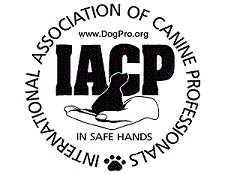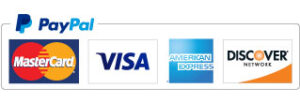Dog Nutrition
A lot of people don’t realize just how important nutrition is to dogs. Poor nutrition greatly affects how a dog is feeling and acting. If your dog is:
- Shedding greatly
- Going to the bathroom multiple times a day
- Eating more than they should be
- Acting aggressive, nervous, or overly hyper
- Having multiple different health issues
…chances are that your dog is either on a very poor quality food, or has some kind of food allergy. Allergies are a whole other subject that I won’t even begin to cover. This is going to be directly focused on quality of dog food and how it can affect your dog.
IF YOU FEED RAW, FOLLOW THESE GUIDELINES:
A raw diet is always my first recommendation for your dog’s diet. Every breed of dog is 98% wolf. Dogs are not meant to have carbs, fruits, or veggies in their diet. They are meant to eat meat! Just look at your dog’s teeth, they are designed to rip and tear. Want to learn more about raw? Check out the links listed below:
The Primal Eating Plan For Dogs
We recommend OC Raw’s Raw diet over any other brand. Check out the links below to find out why.
Raw is definitely ALWAYS best for your dog, but it can be expensive. Are you worried about money, but still want to feed your dog the best food? Then we recommend feeding a high quality kibble, loaded with vitamin/mineral supplements, probiotics, and digestive enzymes 5 days of the week, fast 1 day of the week (and on their day of fast, give your dog a raw marrow bone, which is excellent for their teeth), and feed raw 1 day a week. This is a great diet that will help give your dog everything they need!
IF YOU FEED DRY KIBBLE, FOLLOW THESE GUIDELINES:
PROTEINS
When deciding on which food to start feeding your dog, there are a lot of things you need to look at before you make a final decision. The first thing you want to look for in the ingredients of your dog’s food is that the very 1st ingredient in the list should be a protein. It doesn’t matter what the protein is, it can be chicken, lamb, beef, duck, salmon, etc, it just needs to be listed as the very first ingredient in your dog’s food. You also don’t want the protein ingredient to say anything like ‘chicken-by-products’, ‘beef-by-products’, etc. By-products are basically just the heads/feet/intestines of the animal, and don’t contain a lot of actual meat. You want the protein ingredient to either read ‘Chicken’ or ‘Chicken meal’, etc. When listed as ‘Chicken’ or ‘Chicken meal’, that means only the actual meat has been used, no by-products.
Also try to stay away from a food if in the ingredient’s list, protein is listed as some kind of unnamed protein, such as ‘Meat and Bone Meal’. AAFCO (Association of American Feed Control Officials) has confirmed that they do allow euthanized dogs and cats to be turned into dog food (disgusting, right?). If a food has put euthanized dogs or cats in their food, they will list it as ‘Meat and Bone Meal’ (which could also contain cows, sheep, horses, etc). You just don’t know what you’re getting with ‘Meat and Bone Meal’, which is why it is definitely one ingredient you want to stay away from. You are safe as long as your pet food specifies the type of meat, and doesn’t list that the ingredient is a by-product of that meat.
CARBOHYDRATES
The second thing you want to look for when deciding which dog food to feed is a proper carbohydrate. There are so many foods out there that try to get away with poor carbohydrate choices in their ingredients. The two main carbs you want to stay away from are Corn (ground yellow corn, whole grain corn, corn gluten meal, etc) and soy. I see a lot of dogs that are specifically allergic to soy, so I generally steer clear of it. The problem with corn is that dogs can’t digest it (just like we can’t), meaning it passes right through them, simply acting as a filler with no actual nutritional value. Foods with high amounts of corn typically need to be fed in very high amounts to your dog in order for them to feel full, simply because corn just sits in their stomach, and they aren’t getting any vitamins or minerals out of it. I typically recommend using foods with rice, sweet potatoes, etc listed as carbohydrates in the ingredients. They are healthier sources of carbs for your dog. Other smaller carbohydrates I like listed in the ingredients are carrots, peas, oatmeal, etc.
BEHAVIOR PROBLEMS
When dogs are fed poor quality foods, they often develop major behavior problems later in life that can be directly related to what they eat. I often see aggression, nervousness, and even hyperactivity in dogs that are fed poor quality food. These behaviors may just be coincidence, or they may actually have the behaviors for another reason, but more often than not it is because they just feel awful. They aren’t getting any of the nutrition they need, so they act out the only way they know how and develop behavior issues, just to let someone that they need something that’s missing from their food. Some dogs become so lethargic and uncomfortable that they become aggressive, other dogs just want to get rid of the feeling by releasing lots of energy, it just depends on the dog, the brand of food, etc. I have worked with many dogs that after being switched to a better quality food, their whole attitude changed. They were more eager to please, more willing to learn, and noticeably happier. Poor food is definitely a huge contributing factor to how your dog is feeling and acting.
FOODS TO STAY AWAY FROM
- Ol’ Roy
- Kibbles n Bits
- Beneful
- Pedigree
- Iams
- Eukanuba
- Science Diet
- Purina
- Dog Chow
- Alpo
- Nutrish
- Any foods you can buy at grocery stores, or for extremely cheap
PROS TO FEEDING BETTER FOOD
There are many pros to feeding better food to your dog. The three main ones I love are easy to remember, your dog will eat less, shed less, and poop less. Definite pros, especially for the owners of very large breed dogs. You definitely want a dog that doesn’t eat much, doesn’t shed as much, and doesn’t poop much. The question you might be wondering is, “Why would better food help my dog so much?”
Why would your dog eat less? We’ve covered this briefly in the Carbohydrates section. Poor quality foods use corn. Dogs can’t digest corn, and they also can’t get any nutrients out of it, so they eat more to feel full. Poor quality foods also usually have very low calorie content compared to higher quality foods, so your dog needs to eat more just to get the calories they need every day.
Why would your dog shed less? Higher quality foods generally also have high amounts of omega 3 & 6, which greatly help your dog’s skin and coat. They also have more vitamins and minerals to help your dog’s skin and coat become healthier, shinier, thicker, and softer. Their coat will no longer be dry, coarse, smelly, or dull.
Why would your dog poop less? First, they wouldn’t be easting as much, which would greatly decrease the amount of waste in the backyard. Second, they are consuming more nutrients into their body (instead of fillers sitting their stomach, they have high quality ingredients that their body needs), which also decreases the waste amount.
Another pro of having your dog on higher quality food is that you will be spending less in the vet office as your dog gets older. On a poor quality food, your dog isn’t getting the essential nutrients they need to keep their body running properly, causing their organs and joints to fail quicker. You end up spending more in the vet’s office as they get older, and your dog may even die earlier than they should. On better quality foods, your dog is getting the protein, carbohydrates, vitamins and minerals they need to keep their organs and joints running smoothly as they get older, which means they won’t need as many vet visits in the future.
FOODS I RECOMMEND
- *OC Raw* – Our 1st recommendation for food choice
- Victor High Pro Plus
- Earthborn
- Taste of the Wild
- Wellness
- Nature’s Domain
- Natural Balance
- Evo
- Innova
- Kirkland
- Solid Gold
- Canidae
- Any foods in the Holistic, or Organic Section of pet food stores, or specialty stores
Some dogs do need to be placed on supplements to help their body run as it should. There are many reasons why a dog would need a supplement. It could be related to bad breeding, poor nutrition for too long, allergies, bad joints, etc. There are lots of great supplements out there that will help keep your dog on track, so they can live happy and healthy lives.
SUPPLEMENTS I RECOMMEND
- Glucosamine & Chondrotin (especially for large breed dogs, or extremely active dogs)
- *Probiotics* – Dogs MUST have probiotics if fed dry kibble, or canned food. Raw diets don’t need probiotics
- *Digestive Enzymes* – Dogs MUST have digestive enzymes if fed dry kibble, or canned food. Raw diets don’t need enzymes
- *Endurance:* Vitamin and mineral supplement. Dogs MUST have Endurance if fed dry kibble, or canned food. Raw diets don’t need Endurance
- System Saver: Herbal remedy for arthritis, dysplasia, bowel & respiratory diseases, and more. (volharddognutrition.com)
- Myristin: Helps joint Disorders (volharddognutrition.com)
- Tummy Tonic: Helps break down food for dogs with sensitive stomachs (volharddognutrition.com)
HUMAN FOOD
One big mistake a lot of people make is to feed human food to their dogs. Not only can this cause a lot of bad behaviors in your dog (begging, resource guarding, dominance, etc), but there are also many human foods out there that are very toxic to dogs. Some of the foods that are toxic to your dog you probably would probably never suspect. Dogs just aren’t made to be able to digest as much food as we are, and so a lot of foods out there will make your dog very sick or could even eventually kill them. That’s just a risk most people don’t want to take. It’s best to be on the safe side and never give your dog human food. I do understand, though, that things happen, and your dog will get human food at some point in their life. For that reason, I have listed foods below that are dangerous for dogs to eat.
TOXIC HUMAN FOODS FOR DOGS
- Chocolate
- Coffee/Caffeine
- Grapes/raisins
- Avocado
- Macadamia Nuts
- Xylitol (found in gum, tooth paste, artificial sweeteners)
- Onions
- Garlic
- Milk
- Salt (too much salt)
- Fat Trimmings
RECOMMENDED BOOKS:
Healing Pets with Nature’s Miracle Cures
– Henry Pasternak D.V.M., C.V.A.
Dr. Pitcairn’s New Complete Guide to Natural Health for Dogs and Cats
– Richard Pitcairn D.V.M.
Holistic Guide for a Healthy Dog
– Wendy Volhard and Kerry Brown, D.V.M.
The Veterinarians’ Guide to Natural Remedies for Dogs
– Martin Zucker
The Goldsteins’ Wellness & Longevity Program
– Robert S. Goldstein, V.M.D., and Susan Goldstein
Bioavailability of Nutrients for Animals: Amino Acids, Minerals and Vitamins
– Edited by Clarence B. Ammerman




